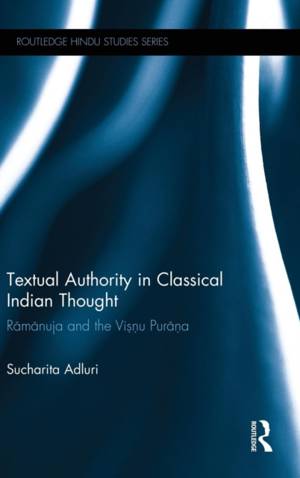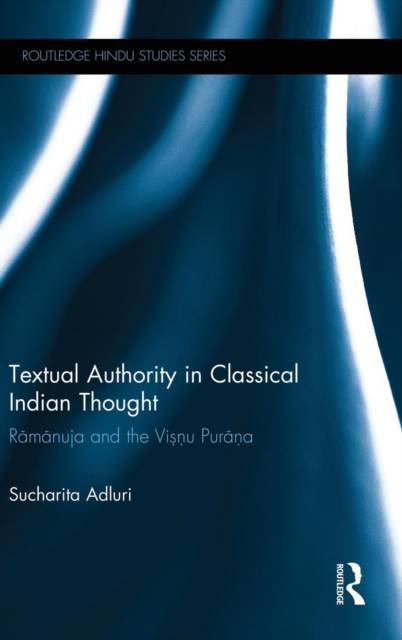
- Retrait gratuit dans votre magasin Club
- 7.000.000 titres dans notre catalogue
- Payer en toute sécurité
- Toujours un magasin près de chez vous
- Retrait gratuit dans votre magasin Club
- 7.000.0000 titres dans notre catalogue
- Payer en toute sécurité
- Toujours un magasin près de chez vous
Description
Theistic Vedānta originated with Rāmānuja (1077-1157), who was one of the foremost theologians of Viśistādvaita Vedānta and also an initiate of the Śrīvaisnava sectarian tradition in South India. As devotees of the God Visnu and his consort Śrī, the Śrīvaisnavas established themselves through various processes of legitimation as a powerful sectarian tradition. One of the processes by which the authority of the Śrīvaisnavas was consolidated was Rāmānuja's synthesis of popular Hindu devotionalism with the philosophy of Vedānta.
This book demonstrates that by incorporating a text often thought to be of secondary importance - the Visnu Purāna (1st-4th CE) - into his reading of the Upanisads, which were the standard of orthodoxy for Vedānta philosophy, Rāmānuja was able to interpret Vedānta within the theistic context of Śrīvaisnavism. Rāmānuja was the first Brahmin thinker to incorporate devotional purānas into Vedānta philosophy. His synthetic theology called Viśistādvaita (unity-of-the-differenced) wielded tremendous influence over the expansion of Visnu devotionalism in South India and beyond. In this book, the exploration of the exegetical function of this purana in arguments salient to Rāmānuja's Vedānta facilitates our understanding of the processes of textual accommodation and reformulation that allow the incorporation of divergent doctrinal claims.
Expanding on and reassessing current views on Rāmānuja's theology, the book contributes new insights to broader issues in religious studies such as canon expansion, commentarial interpretation, tradition-building, and the comparative study of scripture. It will be of interest to students and scholars of Indian philosophy and Religious Studies.
Spécifications
Parties prenantes
- Auteur(s) :
- Editeur:
Contenu
- Nombre de pages :
- 170
- Langue:
- Anglais
- Collection :
Caractéristiques
- EAN:
- 9780415695756
- Date de parution :
- 17-11-14
- Format:
- Livre relié
- Format numérique:
- Genaaid
- Dimensions :
- 157 mm x 231 mm
- Poids :
- 362 g

Les avis
Nous publions uniquement les avis qui respectent les conditions requises. Consultez nos conditions pour les avis.






